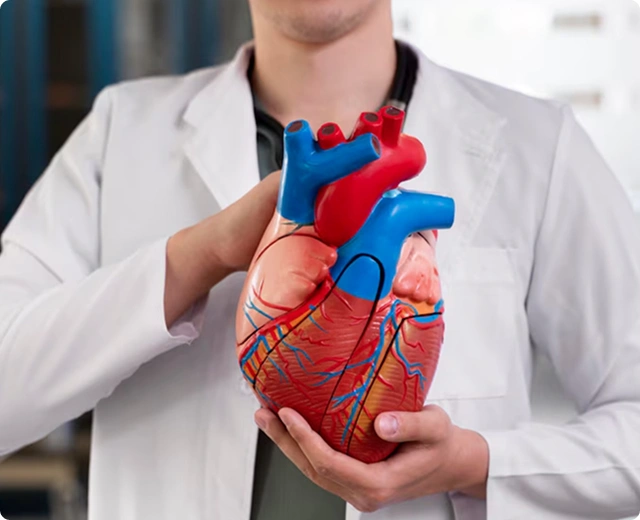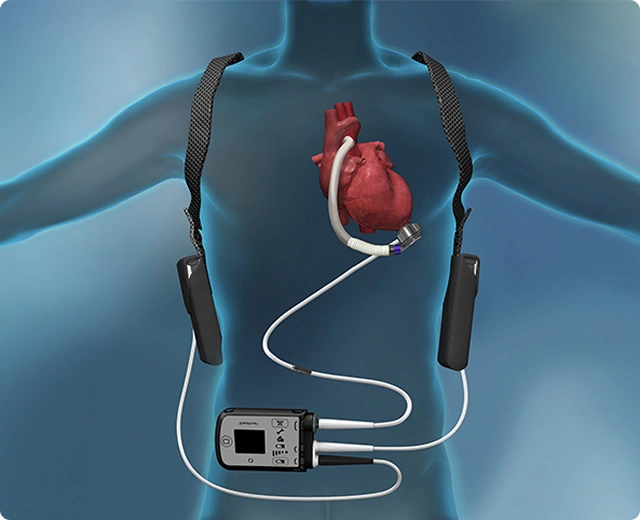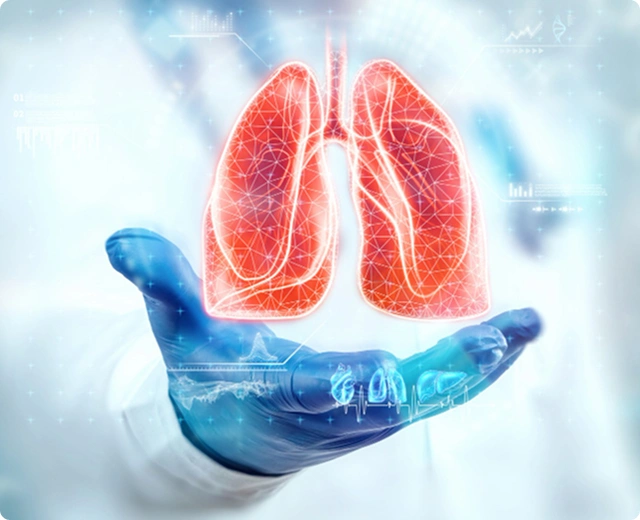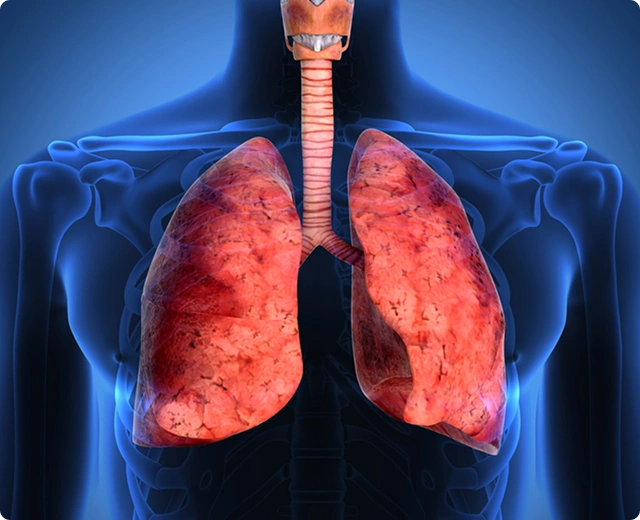Heart and Lung Transplant
Heart and lung transplants are life-saving surgeries for patients with end-stage heart or lung disease who have run out of other options. Our team of multidisciplinary transplant specialists provides global care, from evaluation through recovery after surgery, to ensure patients receive the best care at every turn.
Preparing for Heart Transplant
Preparing for a heart transplant involves thorough medical evaluations, counselling, and planning. Our experts assess overall health, address risk factors, and create a personalised plan to optimise outcomes. Patients and families are educated on what to expect before, during, and after surgery. Emotional support and logistical assistance help ease the transition as patients await a donor heart. Our team is here to guide every step of your transplant journey.


LVAD Left ventricular assist device
For patients with severe heart failure awaiting a transplant, a Left Ventricular Assist Device (LVAD) can be a critical bridge. This mechanical pump supports the heart’s ability to circulate blood throughout the body, improving quality of life while waiting for a donor organ. LVADS can also serve as long-term therapy for those not eligible for transplant. Our team specialises in managing LVAD therapy, ensuring the best possible outcomes with round-the-clock care and support.
Transplant Procedure
Getting started
Taking the first step toward a heart transplant begins with a thorough evaluation by our experienced transplant team. We assess your heart function, overall health, and compatibility with transplant eligibility criteria. Choosing the right transplant centre is crucial—consider experience, survival rates, and the quality of support services offered. Our centre provides comprehensive care, including counselling, housing assistance during recovery, and connections to support groups. Once approved for transplant listing, we continue to guide you through the waiting, preparation, and recovery phases with compassion and expert care.
Waiting for a donor organ
Once listed for a heart transplant, patients enter a waiting period that can vary depending on organ availability, blood type, medical urgency, and matching criteria. Regular check-ups, lab tests, and readiness assessments are crucial during this time. Patients must stay prepared for a potential call at any moment, maintaining optimal health and managing existing heart conditions carefully. Emotional support during this period is essential, and our transplant coordinators are always available to provide updates and reassurance. Our team ensures that patients remain informed, hopeful, and physically ready to receive a donor heart whenever the opportunity arises.
Before transplant surgery
Before your heart transplant surgery, you'll undergo a series of tests to confirm that you remain an ideal candidate for the procedure. This includes blood work, imaging tests, and sometimes final cardiac evaluations. Our care team provides detailed instructions regarding eating, medication management, and hospital admission procedures. You'll meet with your surgical team to review the operation, discuss expectations, and address any concerns. We also prepare patients emotionally and mentally, reinforcing the importance of a positive mindset for a smooth recovery. Every step is designed to ensure you feel confident and fully supported as you prepare for this life-changing surgery.
After the procedure
Taking Immunosuppressant
Lifelong immunosuppressant therapy prevents your immune system from rejecting the new heart.
Lifelong Care Plan
Close monitoring, medication adherence, and lifestyle changes ensure long-term transplant success.
Cardiac Rehabilitation
A supervised exercise and education program helps rebuild strength, endurance, and confidence post-surgery.
Preparing for Lung Transplant
Preparing for a lung transplant involves comprehensive evaluation, optimising physical health, and psychological readiness. Our lung transplant specialists ensure that patients are educated about every step of the process, from listing requirements to post-surgery lifestyle changes. Nutritional guidance, smoking cessation (if applicable), and pulmonary rehabilitation may be advised before transplant listing. Our team offers personalised support, empowering patients and their caregivers to make informed decisions. This preparation enhances recovery and long-term transplant outcomes.


Risk of rejection
Following a lung transplant, the risk of rejection remains a lifelong concern. The immune system naturally attempts to attack the new lung, viewing it as a foreign body. Early detection and prompt treatment of rejection are vital to maintaining lung function. Regular lung function tests, imaging, and biopsies are essential parts of the follow-up process. Immunosuppressive medications, careful monitoring, and healthy living habits significantly lower the risk. Our transplant team works closely with patients to ensure early intervention and successful management of any rejection episodes.
Procedures
Getting started
The first step toward a lung transplant is undergoing a full evaluation to assess medical eligibility and readiness. This involves lung function testing, imaging, cardiac assessments, and psychosocial evaluations. Choosing a centre with experienced lung transplant specialists is crucial to achieving the best outcomes. Our team assists with logistics like travel support, caregiver accommodations, and access to transplant support groups. Once approved, patients are listed for transplant and guided through every milestone, ensuring they are physically and mentally prepared for the life-changing surgery ahead.
Waiting for a donor organ
After being placed on the lung transplant list, the waiting period begins. The length of wait can vary greatly based on blood type, lung size, health status, and organ availability. During this time, patients must maintain optimal health to stay eligible and improve post-transplant outcomes. Pulmonary rehabilitation, nutrition management, and infection prevention become critical. Our team conducts regular check-ins to monitor progress and address emotional well-being. We ensure patients and their families are fully informed and supported, helping them stay ready and hopeful for the call that could transform their lives.
Before transplant surgery
Before your lung transplant, additional tests confirm your eligibility and optimal health for surgery. This includes imaging studies, lab tests, and pulmonary evaluations. Patients receive instructions about pre-surgery fasting, medication adjustments, and hospital admission procedures. Emotional preparation is equally emphasised, with counselling services available. Meeting with the surgical and transplant team before the procedure allows patients to understand the process, set realistic expectations, and clarify any concerns. Our team is committed to ensuring that patients approach surgery feeling empowered, well-informed, and ready for a successful transplant journey.
After the procedure
Taking Immunosuppressant
Medications are essential to prevent rejection and maintain new lung function.
Lifelong Care Plan
Continuous monitoring, medication adjustments, and lifestyle management optimise long-term health.
Living a Healthy Lifestyle
Maintaining fitness, nutrition, and avoiding infections is crucial for transplant success.
Emotional Support
Counselling and peer support help patients adapt mentally and emotionally to their new life.
Add a contact form
Worried about your symptoms but afraid to ask? We’re here to listen.
Worried about your symptoms but afraid to ask? We’re here to listen.
FAQ’s frequently asked questions
-
After a heart transplant, patients require lifelong immunosuppressant therapy to prevent rejection. Regular follow-up appointments, cardiac rehabilitation, and close monitoring of heart function help ensure the transplanted heart remains healthy. Most patients experience significantly improved quality of life, energy levels, and life expectancy post-surgery.
-
Lungs for transplant typically come from deceased donors who have healthy lung function and match the recipient’s size and blood type. Donors undergo rigorous screening to ensure the safety and success of the transplant.
-
While there is no strict age cutoff, most lung transplant centres accept candidates younger than 65. However, highly fit older patients may still qualify. Every case is evaluated individually based on overall health and ability to withstand surgery and recovery.
